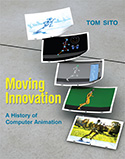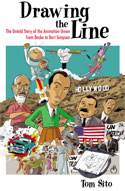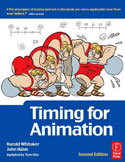|
History for April 16, 2016 April 16th, 2016 |
|
Quiz: Match the Shakespeare play to the cities they are set in. Romeo and Juliet, Othello, The Taming of the Shrew. Are they set in Venice, Padua or Verona?
Yesterday’s Question answered below: Why is saying My name is Mudd, the equivalent of saying your goose is cooked, or you’re in big trouble.?
-----------------------------------------------------------------------------------
History for 4/16/2016
birthdays: King John II “The good” of France (1319), Elisabeth Vignee-Lebrun, Wilbur Wright, Charlie Chaplin, J.P. Morgan, Kingsley Amis, Anatole France, Henry Mancini, Peter Ustinov, Kareem Abdul-Jabbar, Bobby Vinton, Spike Milligan, John Halas, Edie Adams, Hans Sloane*, Disney artist Victor Haboush, Martin Lawrence is 51, John Cryer is 51, Ellen Barkin is 62, Pope Emeritus Benedict XVI is 89.
*Sir Hans Sloane was the chemist to Queen Anne of England circa 1700. He pioneered the concept of a pharmacy, left his artifact collection to be the basis of the British Museum and produced an early recipe for milk chocolate. Sloane Square in London was named for him. The British name for Yuppies was Sloane Rangers, not for Sloane himself but for all the chic shops on Sloane Square.
1260- Chartres Cathedral completed. Art history teachers rejoice!
1632- Battle of the Lech River- in the Thirty Years War the Protestant army under Swedish King Gustavus Adolphus defeated the Catholics under Johan Von Tilly. The 74 year old mercenary general Tilly, his hip smashed by a cannon ball, died soon after.
1746- BATTLE OF CULLODEN- The last pitched battle fought on British soil. British armies under the Duke of Cumberland crushed the Scottish Highlanders raised by Prince Charles Stuart. It is considered the last gasp of Scottish independence although “Bonnie” Prince Charlie’s goal was not an independent Scotland but recapturing the English throne for his deposed family.
Historians harp on what a forlorn hope it was to conquer the mighty British Empire but truth be told the Highland Army got pretty far pretty easy, down into England as far as Derby before falling back into Scotland. With the majority of the British army running around North America, Gibraltar and India there were fewer than 15,000 redcoats to defend the homeland. But the initial surprise was lost as most of the Highland Chieftains spent most of the time arguing and paid their troops with Oatmeal.
Bonnie Prince Charlie made a daring escape across the moors and fens that has been much romanticized, truth was he was a depressed wife beating alcoholic who got soused soon after the battle. He was staying at the house of a fence-sitting Scottish laird when they could hear the tromp of pursuing English cavalry in the courtyard below. The Laird had to pry the wine bowl from Charlie’s fingers to get him to leave. In Edinburgh Castle today you can see the bowl on display, with two chipped pieces where the prince’s thumbs were holding the bowl as it was yanked away. The vengeful British banned for a time the clan system, tartans, bagpipes and the Gaelic language for decades.
1787- What some consider the first professionally produced American play- Royall Tyler’s the Contrast- debuted at New York City’s John Street Theater. It was a comedy that poked fun at aristocracy. Gen. George Washington was in the audience. At this time the Broadway theater district and Times Square was a quiet forest clearing.
1828- Spanish artist Francisco Goya died at 82 in Bordeaux, France. Years later when his remains were moved to Madrid it was discovered Goya wasn't alone in his grave. His friend Martin Goesochea's remains were in with him. Maybe there was a two-for-one sale..
1862- Union Admiral David Dixon Porter's fleet of ironclad warships run past the batteries of Vicksburg ferrying Grant and his army to the town of Hard Times. One of the cannon thundering at Porter was the famous Rebel 18 pounder "Whistlin' Dick". It was so named because the rifling of it's barrel gave it's shells an erratic spin and recognizable whistle.
1865- Confederate leader Robert E. Lee had surrendered his army to Grant and had returned as a private citizen to his Richmond brownstone. This day a scout from Mosby’s Raiders slipped into his home and asked Lee if they should keep fighting guerrilla style. Lee told him. “Tell General Mosby and his command to be good boys and go on home”
1874- AMERICA'S CANNIBAL, Gold prospector Albert Packer went up into the Colorado Rockies with several friends to look for gold. They were stranded by blizzard conditions and reduced to eating their moccasins for food.
On this day Packer, the only survivor, came down to civilization and admitted under examination that he and his friends resorted to cannibalism to survive. Upon further questioning Packer admitted he didn't always wait for his friends to die, he'd hatchet them in the head as they slept, then fricassee them. Packer became the only American ever convicted of cannibalism. The University of Colorado Student Grill is named in his honor.
1905- Andrew Carnegie established the Carnegie Foundation to distribute his philanthropy. The former Scottish orphan coal miner Carnegie renounced his robber baron career and dedicated himself to donating the bulk of his fortune to building libraries and hospitals. He claimed: “A man who dies rich dies disgraced!” Mark Twain wrote him satirical letters “To Saint Andrew from Saint Mark”
1912- Harriet Quimby became the first woman to fly the English Channel.
1926- The Book-Of-The-Month-Club distributed it’s first selection-Lolly Willowes by Sylvia Townsend Warner.
1935- Fibber McGee and Molly debut on radio.
1943- BICYCLE DAY-In Basil Switzerland chemist Dr. Albert Hoffman discovered the hallucinogenic properties of LSD. He had become very interested in the relationship between ergot (wheat rust), and had done a great deal of research about the Oracle at Delphi. He had synthesized LSD in 1938 but couldn't figure out what to do with it. However, when he made up the drug the second time, he probably inhaled enough from it to start hallucinating. Since he had already tried mescaline, he had a pretty good idea of what was happening to him, so he closed up his lab, got on his bicycle and pedaled home to Binnigen, a suburb on the southern edge of Baselstadt, a trip of four or five miles, hallucinating all the way.
The next day he went back to the lab and made up a dose of LSD the size of a reasonable dose of mescaline, without realizing that that amounted to a tenfold overdose of LSD. Twenty minutes later he said 'Oh oh,' got on his bike and pedaled back to Binnigen. A scientist reader to this site added this: I believe the first hope for LSD was that it would produce an 'experimental psychosis,' which would allow scientists to study schizophrenia in otherwise 'normal' patients or subjects.
1940- On Baseball Season’s opening day President Franklin D. Roosevelt's ceremonial first pitch smashed a Washington Post camera. The Chief Executive was not charged with a wild pitch. Red Sox hurler Lefty Grove blanked the Washington Senators, 1-0.
1946-The Brothers Chevrolet- Louis and Arthur Chevrolet were Louisiana race car drivers at the beginning of the 20th Century who were invited by General Motors to design a line of high performance vehicles. But their business skills were never as good as their engineering abilities. After a number of bad deals, cheated opportunities and hard luck Louis died a common mechanic on his own Chevrolet assembly line. This day Arthur Chevrolet, broke and alone, committed suicide.
1947- The Zoom Lens patented.
1952- THE NUNIVAK INCIDENT AND DEVELOPMENT OF THE COMPUTER – American coastal air defenses had been neglected since the end of WWII. But by 1952 the Cold War raised tensions, and we knew the Soviets had nuclear bombers capable of reaching the US mainland. This night, a radar station at Nunivak Alaska and another at Presque Isle Maine both reported flights of unidentified aircraft headed towards the U.S.. They turned out to be false alarms, but the reports of the planes took four hours to reach Washington! The resultant scandal in Strategic Air Command resulted in the rapid building up of a new early warning system. This fostered the birth of the SAGE computer systems, inventing the computer screen, the keyboard and stylus.
1953- PORK CHOP HILL- In the Korean War, today marked the heaviest Red Chinese assaults to retake Hill 255, because of its shape called Pork Chop Hill. This hill had very little strategic value, but the Chinese and UN forces placed great symbolic meaning to it as a test of strength. Pork Chop Hill was battled over from June 1952 practically until the Peace Treaty of Panmunjom in mid 1953.
1959- John McCarthy of MIT invented the computer language LISP.
1962- Walter Cronkite took over the job of anchor at the CBS Evening News, building a reputation for journalistic integrity almost equaled to Edward R. Murrow. Nicknamed the Most Trusted Man in America, many credit Cronkite for breaking the news to America that the U.S. was not going to win the Vietnam War. President Lyndon Johnson said: If I lost Cronkite then I’ve lost middle America.” When Cronkite retired, the redoubtable CBS News Division descent into tabloid stupidity and irrelevance began.
1983- Disney Channel debuted.
++++++++++++++++++++++++++++++++++++++++++++++++++++++++++
Yesterday’s Question: Why is saying My name is Mudd, the equivalent of you’re in big trouble.?
Answer: 1865- After shooting Abraham Lincoln, assassin John Wilkes Booth had broken his ankle when jumping to the stage from the Presidential box. He galloped across the Navy Yard Bridge into the Maryland countryside. He knocked on the door of the first doctor who would see him, a man named Dr Samuel Mudd. Dr Mudd set the strangers leg. This earned Dr Mudd arrest in the conspiracy and a life sentence at hard labor at Devils Island. This is when the term came into being “My Name is Mudd”, meaning you were in big trouble.

|




